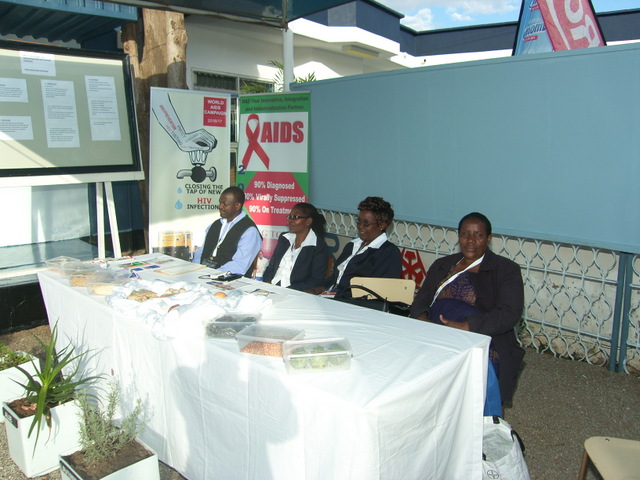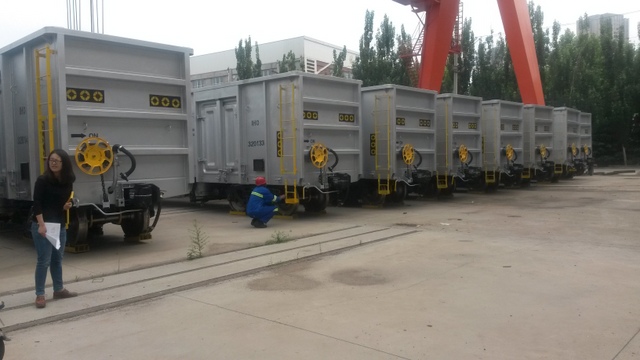THE National Railways of Zimbabwe (NRZ) is on the verge of a new and prosperous era as it focuses on a new trajectory of recapitalisation.
The NRZ has been tasked by the Government to ensure the successful implementation of the $400 million recapitalisation project which is being undertaken in conjunction with investment partners- Diaspora Infrastructure Development Group (DIDG)/ Transnet Consortium.
A deal is expected to be signed at the end of June 2018.
After more than a decade of trying to source capital to replace aging equipment without success, the agreement with DIDG/Transnet presents an opportunity for NRZ to rise again to be the giant it was in the 1990s.
The onerous task to ensure a once-again prosperous NRZ is back on course is on Eng. Mukwada and his management team’s shoulders as the organisation plots the way out of the woods to once again enable the country’s economy to thrive.
As an initial step towards the implementation of the recapitalisation project, the NRZ is leasing 13 locomotives, 200 wagons and seven locomotives from South African rail utility, Transnet, as part of the agreement with the DGIG/ Transnet Consortium.
The equipment is already making an impact on NRZ operations and its customers.
Stockpiles of chrome meant for export are being reduced as all the 200 wagons have been put to dedicated use for Chrome exports from the Zimbabwe Iron and Mining Company (Zimasco) Kildonan in Mashonaland Central and Zimasco Kwekwe to Maputo.
Implementation of the recapitalisation deal will mean NRZ will be able to gradually increase its freight tonnages from the current three million tonnes a year to its design capacity of 18 million tonnes a year.
Moving more goods by rail will have a direct impact on the economy. More companies producing bulk goods will be able to use rail which is cheaper than road transportation and the savings will be passed on to consumers in the form of reduced prices of goods.
In December 2017, the NRZ commissioned a 34.5km railway line between Nandi and Mkwasine which will help small scale sugar cane producers transport their produce at a lower cost.
The $10m project was a sign of successful collaboration between the Government, the European Union which provided the bulk of the funding under the National Sugar Adaptation Trust (NSAT) through Canelands Trust, an organisation that helps out grower sugarcane farmers in the Lowveld, Tongaat Hullets and NRZ.
The entity also oversaw the acquisition of 24 High-Sided Wagons from China in November 2016. The wagons were acquired at a cost of $2.4 million using NRZ’s own resources.
The China-made wagons have made a positive effect on NRZ as customers’ demands are allowed to be met.
The NRZ vision and focus is also tilting towards diversification and unlocking value in its vast resources to shore up its revenue base.
The NRZ has some of the biggest workshops in the country with highly skilled engineers and artisans.
The workshops are in Bulawayo and Mutare.
On a daily basis, the workshops repair NRZ locomotives or manufacture goods needed in the operation of trains. However, the workshops are not operating at full capacity which can be used to the advantage of outside organisations in need of engineering solutions.
The workshops were recently rebranded Inter-Rail-Tech to provide engineering and mining companies as well as individuals with solutions to their engineering requirements.
Opening up the workshops has meant local companies can make use of NRZ’s advanced equipment and expertise while freeing their resources to their core operations.
NRZ is also promoting domestic tourism through Rail Leisure. Rail Leisure is a unit of the Passenger Services which runs Steam Safari Trains. The trains can be chartered by individuals or run by NRZ on special occasions such as Valentine’s Day or Mother’s Day.
NRZ owns buildings and land all over the country and sees potential in unlocking value of its Real Estate.
Its Real Estate portfolio is made up of 3 723 properties consisting of commercial and residential buildings as well as tracts of land strategically located throughout the country.
The NRZ is open to entering into joint ventures in land developments while offering competitive rates for building leases.
Most of the railway tracks in the country were laid in the 1960s and plans are underway to build new railway lines to cut distances and take advantage of emerging markets.
Among the planned new lines is one from Guswini on the Bulawayo-Victoria Falls Line which will cut through Lupane and connect to the Bulawayo-Harare Line at Kwekwe.
Goods such as coal from Hwange going to Harare will no longer pass through Bulawayo.
Another planned line is the Lion’s Den-Kafue Line which make it shorter to transport goods bound for Zambia and Democratic Republic of Congo from the northern parts of the country.
At present all rail freight to north of the country has to pass through Bulawayo and Victoria Falls.
Zimbabwe’s strategic location at the centre of Southern Africa makes the NRZ a key element in the movement of goods from the north to south.
This makes NRZ an integral part in the economic development of not only Zimbabwe but the whole of Southern Africa Development Community (SADC).
NRZ in 2017 marked 120 years of existence since the first train arrived in Bulawayo on November 4, 1897. It has been part and parcel of the economy since its establishment.
The recapitalisation project and other diversification initiatives being undertaken by the NRZ mean that the organisation is ready to continue playing its role as a key enabler in economic growth.
As a result of these achievements, management and other officers are slowly getting recognition for their efforts to revive the NRZ.
Recently, the General Manager, Engineer Lewis Mukwada, was recognised at the Megafest Awards where he received the Outstanding Public Service Leader of the Year award.





